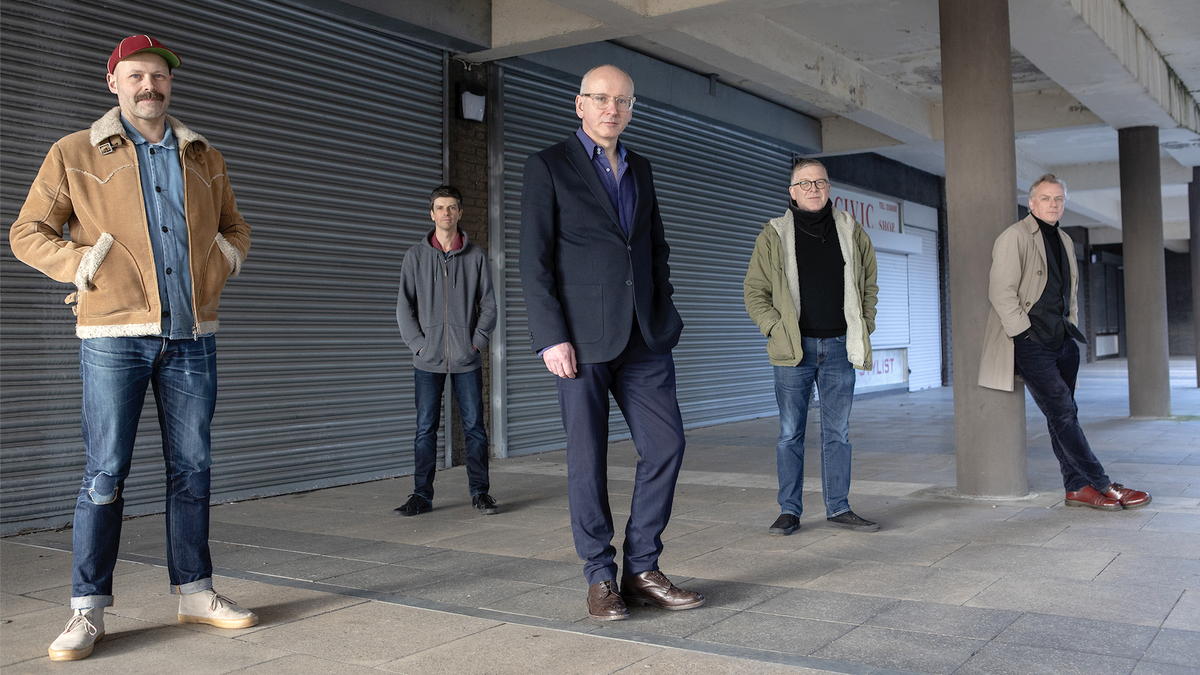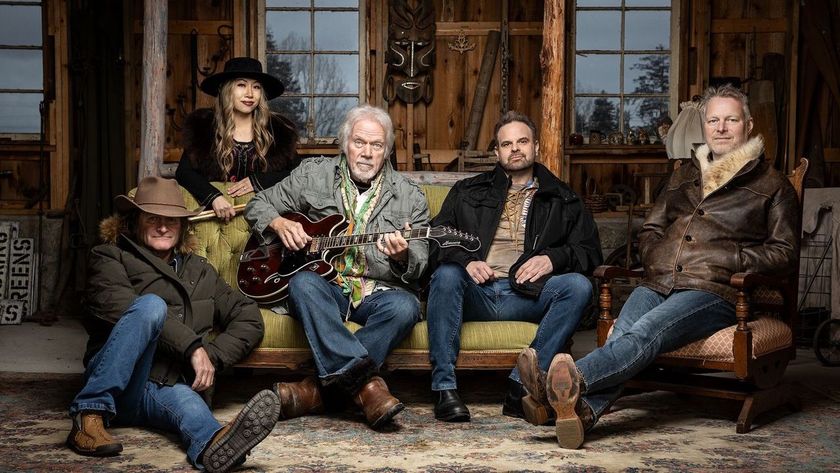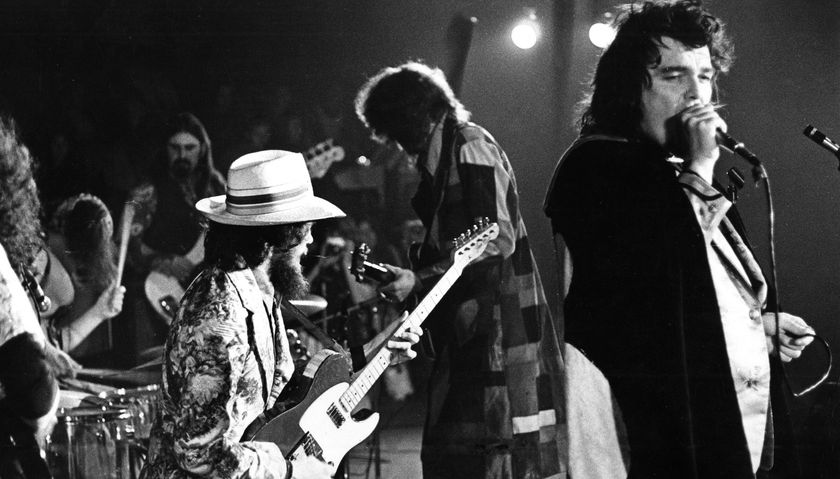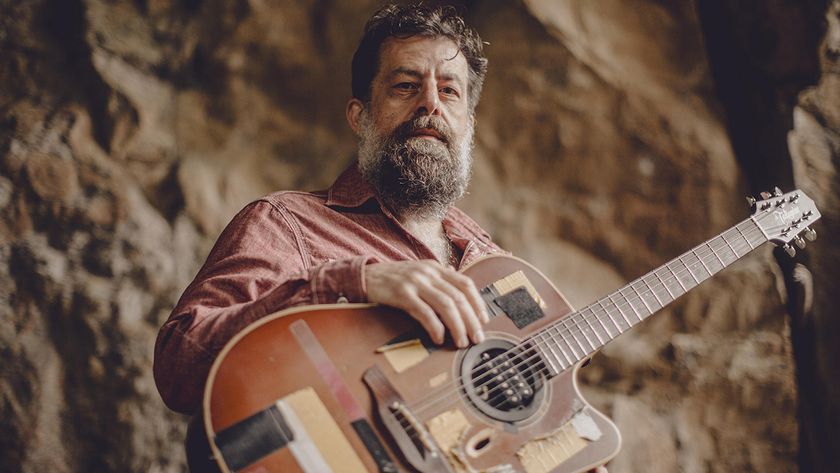Teenage Fanclub’s Norman Blake: “If we share the load, it should mean that we can come up with a stronger album”
Rejuvenated by a lineup shuffle and a spirited new creative dynamic, Scottish rockers Teenage Fanclub make album #11 another effortless hit

For their cool and cruisy 11th album (12th if you count Words Of Wisdom And Hope, their ’02 team-up with Jad Fair), Teenage Fanclub honed in on the art of introspection. Endless Arcade feels distinctly human, the Scottish rockers weaving sharp and soulful tales of hope, home, love and loss around passages of airy pop and fuzzy surf-rock. As for its seemingly nonsensical title, co-frontman Raymond McGinley explains, “I think of an endless arcade as a city that you can wander through, with a sense of mystery, an imaginary one that goes on forever. When it came to choosing an album title, it seemed to have something for this collection of songs.”
Even without McGinley’s philosophical context, the title feels apt for Endless Arcade. There’s a lucid sense of serpentine mystique to the 45-minute affair, making its sentimental edge feel all the more enthralling. Authenticity and ambiguity don’t typically go hand in hand, but especially here, Teenage Fanclub deal in both with spectacular tact. Such is the result of an impenetrable chemistry between McGinley and Norman Blake, who together share lead vocal, guitar and songwriting duties. The role was split three ways until Gerard Love left in 2018, but even without their former bassist, the spirit of Teenage Fanclub has never been this stout.
Australian Guitar caught Blake on a rare day off to chat about the loose and lively origins of Endless Arcade, and how its analogue flair is a cornerstone of the band’s time-tested gear collection.
I wanted to bring up a quote from the press release, which noted that in terms of the songwriting process, “We don’t conceptualise, we don’t talk about it, we just do it.” Is that crucial to capturing the energy and the sonic character of Teenage Fanclub?
I think it is. Raymond will come in and he’ll present his song, and it’s never questioned – we don’t have a discussion about what the song is about, or what we want to add to it. We’ll just accept what he brings to the band – we trust each other with their own ideas.
We like to create something in the moment, and we like to record as live as possible – we set up in the room together with spill between the amps and the guitars and the drums and whatever – and we like to be looking at each other. And we’ll get the bulk of a song down there and then. We’ll overdub vocals and the odd guitar part or something like that, but we want to just capture that moment. That’s the way we’ve worked for a number of years, but especially so on this album.
Maybe on previous albums, whoever had written a song would direct things a little bit – y’know, suggest a drum part or suggest what they would like the bass to do – but with this record, Raymond and I would go into the room, we’d play the song through once, and then everyone would come in and work on their own parts. So it really was a collective effort in that sense.
I suppose after 30-something years, there’d be a level of intuition and faith in each other’s talents.
There absolutely is! Raymond always comes up with really interesting guitar runs. He’s obviously our lead guitarist – I mostly do the rhythm stuff and pick up the odd lead here and there, but Raymond will always find the most appropriate sound that works for the song, and something that the rest of us will find tasteful. I mean, when you play with people for as long as we’ve played together, you get to kind of know what they’re going to bring to the table. And they know what you’re looking for.
Get The Pick Newsletter
All the latest guitar news, interviews, lessons, reviews, deals and more, direct to your inbox!
We have all the gear that we’ve been using for years: Raymond’s got his pre-CBS ’63 Jag that goes into his late ‘50s Deluxe, and I’ve got my 1970 335 that play through a stock AC15 with one of those little XOTIC EP Boosters in front of it. I keep the volume [on the XOTIC EP Booster] zeroed out, because when the guitar goes through that circuit, it just makes the AC15 sound really great. Sometimes I would use a little ‘70s Champ, but y’know, it’s a really simple setup – I guess that’s given us some continuity over the years.
What is it about that 335 that you just can’t get enough of?
It’s just really playable. Obviously we bought that pre-Internet – I think I’ve probably had that guitar for about 25 years. We were gear shopping in Cleveland, in the States, having a look around in this real small store, and I think Raymond said to the guy that owned the place, “This is all real nice, but do you have anything else?” And he’s like, “Oh yeah, I’ve got a couple of little things down in the basement.” And he brought that guitar up, and it was in mint condition – in fact, it had been in the case for so long that there was a tag lying on top of the guitar, and it had been dormant for so long that it made an imprint in the lacquer. I think we paid something like $350 for it. The same day, Raymond picked up a post-CBS Jag in candy apple red, a 1963 model, and that wasn’t expensive either. Those were some great days, back when you could find those crazy special guitars for basically pocket change.
And then we’ve got that one-of-a-kind XOTIC EP Booster pedal…
It might be the best pedal I’ve ever owned! It’s just amazing. I mean, what it does to the tone of the guitar… Y’know, like I said, I don’t even turn it up, because the circuit alone is just incredible. I turn it on and leave it at zero, and it just puts something really nice in the signal path. And then I’ve got a little thing called a Teenage Fanboost that was made by an Aussie friend of mine, Tym – he’d asked me if there was something I wanted that I didn’t have, and I said, “Well, I’d like to have a boost pedal where I could select different frequencies to boost.” And so he made me one! Then I’ve got an MXR Micro Amp that I’ll sometimes kick in, and that’s pretty much it.
So you and Raymond each have six of the songwriting credits on this record. Where did the idea come from to split the workload in half for this one?
I think part of it comes down to the idea that there’s less of a burden on one person to come up with all the songs. If we share the load, it should mean that we can come up with a stronger album. When Gerard [Love, vocals/bass] was in the band, we’d split the songwriting three ways – we’d gotten to the point where we would only write four songs each. And we’ve got ourselves set on doing 12-track albums, so with Jerry out of the picture, it meant that we had to come up with two more each. But y’know, that wasn’t that much of a stretch – when you write songs for an album, you usually have a few more ideas than you need anyway.
Are there any big differences between your respective songwriting styles?
It’s difficult to say! I mean, we probably have a similar approach to writing songs in that there’s always verses and choruses, and often a solo as well. Thematically, they’re probably a bit different – Raymond comes up with a lot more things that are based in arpeggios, whereas mine will be a little more more chordal; more straight-ahead. But obviously, all of us playing on the songs together kind of homogenises it a bit, and makes it sound like us.

Ellie Robinson is an Australian writer, editor and dog enthusiast with a keen ear for pop-rock and a keen tongue for actual Pop Rocks. Her bylines include music rag staples like NME, BLUNT, Mixdown and, of course, Australian Guitar (where she also serves as Editor-at-Large), but also less expected fare like TV Soap and Snowboarding Australia. Her go-to guitar is a Fender Player Tele, which, controversially, she only picked up after she'd joined the team at Australian Guitar. Before then, Ellie was a keyboardist – thankfully, the AG crew helped her see the light…

"The BTO sound is BACK!!" Bachman-Turner Overdrive release first new material in over 25 years – and it features a Neil Young guitar solo

“He would beat the crap out of the guitar. The result can best be described as Jackson Pollock trying to play like John Lee Hooker”: Aggressively bizarre, Captain Beefheart's Trout Mask Replica remains one of the craziest guitar-driven albums ever made









